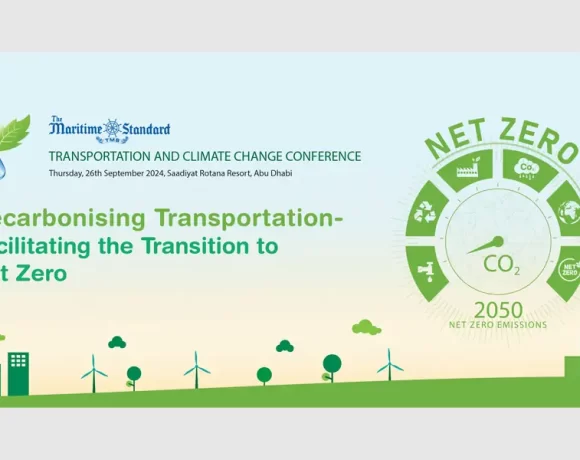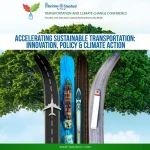How to Travel Sustainably: Top Tips for Ocean-Friendly Vacations

The global tourism industry is a big contributor to greenhouse gas emissions, making up 8% of the total, as Nature Climate Change reports. This highlights the urgent need for sustainable travel. It’s important to think about how our holidays affect oceans and coastal areas.
Eco-friendly tourism is becoming more popular as people become more aware of their environmental impact. There are many ways to make your trip more sustainable, like choosing green accommodations and supporting local businesses. These actions help us enjoy our travels while protecting the planet for the future.
Being ocean-friendly in your vacations means more than just avoiding plastic straws. It’s about taking a holistic approach to travel. By making thoughtful choices, we can lessen our impact on marine life and help protect our oceans.
Key Takeaways
- Global tourism accounts for 8% of greenhouse gas emissions
- Eco-friendly tourism is essential for preserving our planet
- Sustainable travel involves mindful choices in all aspects of your journey
- Ocean-friendly vacations help protect marine ecosystems
- Small changes in travel habits can make a significant positive impact
Understanding Sustainable Travel
Sustainable travel is becoming more popular. It aims to reduce the harm tourism can cause to the environment and local communities. It’s about making choices that help both the traveller and the place they visit.
What is Sustainable Travel?
Sustainable travel means making choices that are good for the planet. This includes using green transport, supporting local businesses, and respecting local cultures. The aim is to protect our natural resources and improve the lives of local people.
Importance of Eco-Friendly Practices
Using eco-friendly practices is key to saving our planet. Tourism is a big contributor to global carbon emissions, with most coming from how we travel. If we don’t change, this could get even worse by 2050.
- Choose eco-certified accommodations to reduce energy waste
- Opt for direct flights to decrease your carbon footprint
- Support local economies by dining at locally-owned restaurants
- Pack light to help reduce aircraft fuel consumption
By following these tips, you can help protect the environment and have a better travel experience. Connecting with local communities and respecting nature lets you truly understand your destination. It also helps keep it beautiful for others to enjoy.
Choosing Your Destination Wisely
Choosing the right destination is key for responsible and eco-friendly travel. With 80% of travellers visiting just 10% of the world, picking less crowded places is important.
Researching Eco-Conscious Locations
When planning your trip, look for places that focus on sustainability. Countries like Costa Rica have programmes to rate their green efforts. Slovenia is great for outdoor lovers, with its commitment to eco-tourism.
Consider a six-day tour of Slovenia. You can explore Ljubljana, Lake Bled, and Triglav National Park.
Benefits of Off-Peak Travel
Traveling during off-peak seasons has many benefits:
- Less crowded places and lower strain on local resources
- Lower prices for places to stay and things to do
- More real interactions with locals
- Less harm to popular sites
Supporting Local Economies
Choosing local places to stay and eat helps the local economy. This helps reduce the bad effects of too many tourists, like in Venice. By staying longer, you help the environment and support the community more.
“Responsible tourism isn’t just about where you go, but how you travel and the choices you make along the way.”
Transportation: Make Conscious Choices
Choosing the right transport is key for Low-carbon Travelling. Transport is responsible for 70% of holiday carbon emissions. So, making smart choices is essential.
Opting for Public Transport
Public transport cuts carbon emissions. In the UK, trains emit six times less carbon than flying. Buses produce nine times fewer emissions. In Europe, rail travel is up to 10 times more eco-friendly than flying.
Eco-Friendly Car Rentals
Eco-friendly car rentals are great for personal transport. Many cities offer electric vehicle hire schemes. This lets tourists explore while reducing their environmental impact. These schemes support Environmentally-friendly Adventures and offer flexibility.
Cycling and Walking as Alternatives
Cycling and walking are perfect for short trips. They have zero emissions and are good for your health. Many places have bike-sharing schemes to encourage sustainable exploration.
“Emissions from one long-haul flight can exceed those from driving a standard petrol car for an entire year.”
Choosing sustainable transport options greatly reduces carbon footprint. Whether it’s trains over planes or cycling, these choices help. They support the global move towards Low-carbon Travelling and Environmentally-friendly Adventures.
Accommodation: Finding Green Stays
Choosing the right place to stay is key to ethical travel and mindful exploration. Green accommodations help reduce the tourism industry’s environmental impact. Did you know that tourist lodgings account for 20% of emissions from the tourism sector?
Identifying Eco-Friendly Hotels
Look for hotels with recognised green certifications. Green Key and Travelife are trustworthy labels that assess accommodations based on strict environmental criteria. Booking platforms like EcoHotels.com and BookDifferent.com make it easier to find sustainable options, assigning green scores to hotels.

Benefits of Staying with Locals
Opting for local stays through platforms like FairBnB supports community projects and offers authentic experiences. This form of mindful exploration allows travellers to immerse themselves in local culture while contributing to the area’s economy.
Sustainable Practices in Lodging
Green accommodations implement various eco-friendly practices. For instance, Cavallo Point in San Francisco saves one million gallons of water yearly through water reclamation. The Mosaic House Design Hotel in Prague recycles wastewater to generate energy. When booking, look for places that prioritise these sustainable practices:
- Renewable energy use
- Water conservation measures
- Waste reduction and recycling programmes
- Local and organic food sourcing
By choosing green stays, you’re not just finding a place to rest – you’re actively participating in ethical travel and supporting global sustainability efforts.
Packing for a Sustainable Trip
Learning to travel sustainably begins with smart packing. Green travel starts at home. By choosing eco-friendly items and reducing plastic, you can make a big difference.
Eco-Friendly Packing Essentials
When packing, think about sustainable alternatives. Use a reusable water bottle and coffee cup to avoid plastics. Instead of bottled shampoo, try a biodegradable shampoo bar. These changes can significantly reduce your impact on the environment.
Reducing Plastic Use
Plastic pollution harms our oceans. Use reusable bags and containers instead of disposable ones. Choose toiletries in recyclable packaging or bring your own refillable containers. These steps help protect our oceans and marine life.
Tips for Lightweight Packing
Packing light is a green travel practice. It cuts down on fuel use and makes public transport easier. Here are some tips:
- Choose versatile clothing items that can be mixed and matched
- Use packing cubes to organise and compress your belongings
- Limit shoes to one or two pairs that suit multiple occasions
- Opt for travel-sized toiletries or solid alternatives
By following these sustainable packing tips, you’re making a positive impact. Every small action helps in our effort to protect the planet.
Activities: Engaging in Responsible Tourism
More people are choosing eco-conscious vacations. They want to travel without harming the environment or local communities. By making smart choices, we can enjoy our trips and help make a difference.
Choosing Wildlife-Friendly Experiences
When picking activities, choose ones that care for wildlife and their homes. Stay away from places that harm animals, like elephant rides. Instead, go for guided walks or watching wildlife in safe places.

Volunteering Opportunities
Many places offer chances to help out. But, it’s important to pick projects that really help. Look for ones that work with local groups and make a lasting change. Activities like cleaning beaches, fixing habitats, or teaching English are great choices.
Leaving No Trace Principles
Following Leave No Trace rules is key for responsible travel. These include:
- Plan ahead and prepare
- Travel and camp on durable surfaces
- Dispose of waste properly
- Leave what you find
- Minimise campfire impacts
- Respect wildlife
- Be considerate of other visitors
By sticking to these rules, we can travel lightly and protect nature for others to enjoy.
“Travel is a powerful tool for change. By engaging in responsible tourism, we can create positive impacts that ripple through communities and ecosystems long after our journey ends.”
Dining Sustainably on Your Travels
Eating sustainably while travelling is key to ethical travel. It’s not just about where you go. It’s also about how you connect with local food and support green practices.
Sourcing Local and Organic Foods
Try the local and organic foods of your destination. Farmers’ markets are full of fresh, seasonal produce. This choice cuts down on food miles and helps local farmers.
In New Zealand, you might find venison on menus. It’s a sustainable choice that helps control deer numbers.
Supporting Sustainable Restaurants
Find restaurants that care about the planet. Many are proud to show off their green efforts. The TREE alliance in Cambodia and Laos trains young people in sustainable hospitality.
If you’re unsure, ask about the food’s origins. This shows if a restaurant values sustainability.
Reducing Food Waste While Travelling
Eat mindfully to reduce waste. Some places use systems to track food waste and adjust portions. As a traveller, order only what you’ll eat and take leftovers for later.
Plant-based meals are often better for the planet than those with animal products.
- Choose locally sourced ingredients to reduce carbon footprint
- Support restaurants with sustainable certifications
- Opt for seasonal produce to minimise energy use in food production
- Consider plant-based meals for a lower environmental impact
By choosing sustainable meals, you help the travel industry and support local economies. Every meal is a chance to travel ethically.
Reducing Your Carbon Footprint
Traveling can greatly increase carbon emissions. Tourism is responsible for 8% of global emissions. We can enjoy the world while keeping it green by making smart choices.
Carbon Offsetting Options
Carbon offsetting helps balance out your travel emissions. Airlines and travel firms offer such programmes. For example, some companies offset 125% of emissions from polar trips.

Implementing Sustainable Travel Habits
There are many ways to cut down on carbon:
- Choose public transport or eco-friendly car rentals
- Opt for direct flights to reduce emissions
- Stay in eco-friendly accommodations
- Avoid single-use plastics – using a reusable water bottle can save 167 plastic bottles per year
Benefits of Longer Stays
Staying longer in one place is better for the planet. It means fewer flights and more local exploration. This way, you travel greener and enjoy your trip more.
“Small actions taken by travellers, when combined, can lead to substantial reductions in carbon emissions.”
By choosing sustainable travel, we can have amazing experiences and help the planet. Every little bit counts in our quest for a greener world.
Engaging with Local Cultures Respectfully
Responsible tourism is more than just visiting new places. It’s about exploring with care and connecting with local cultures. This way, you not only enjoy your trip but also help local communities and keep their traditions alive.
Learning Basic Language Skills
Studies reveal that 65% of tourists think it’s key to respect local customs. Learning a few basic phrases in the local language is a great way to show respect. It can lead to deeper connections and show you’re interested in the culture.
Participating in Cultural Experiences
Getting involved in local activities can make your trip even better. Those who try traditional activities are 60% happier than those who don’t. Try a cooking class, join a local festival, or stay with a host family to really understand the local culture.
Understanding Cultural Sensitivities
Research shows that 50% of travellers don’t learn about local customs before they go. This can cause misunderstandings. To be a responsible tourist, learn about what’s considered polite, like dress codes and gestures. Also, remember that 80% of tourists feel awkward taking photos of locals without asking first. This shows how important it is to respect people’s privacy in cultural settings.
By following these tips, you help make tourism more sustainable and create lasting memories. Your thoughtful exploration helps protect local cultures and supports the communities you visit.
Advocating for Ocean Conservation During Travel
Eco-friendly tourism is growing, and people are now seeing their part in saving our oceans. The UN says oceans give us 50% of the oxygen we need. This shows how vital it is to protect marine life. By travelling sustainably, we can lessen our harm to these important places.
Engaging in Beach Clean-Ups
Joining beach clean-ups is a great way to help our oceans. In 2022, The Explorer’s Passage cleaned 500 kilograms of waste from Patagonia’s shores. This effort not only cleans up but also teaches us about the 8 million tons of plastic in our oceans every year.
Supporting Marine Protection Initiatives
Supporting marine protection is easy when you choose the right places to stay and tour operators. Look for places with Green Key or EarthCheck. These show they follow strict green rules. Also, picking eco-friendly seafood and giving to local projects helps a lot.
The Role of Travel in Environmental Awareness
Travel helps us learn about and care for our environment. Seeing the beauty of coastal areas makes us want to protect them. This can lead to lasting changes, like using less plastic and supporting ocean protection. Every choice we make while travelling helps keep our oceans safe for the future.
FAQ
What is sustainable travel?
How can I choose an eco-conscious destination?
What are some sustainable transportation options for travellers?
How can I identify eco-friendly accommodations?
What are some eco-friendly packing essentials?
How can I engage in responsible wildlife tourism?
What are some ways to reduce food waste while travelling?
How can I offset my carbon footprint from travel?
What are some ways to engage with local cultures respectfully?
How can travellers contribute to ocean conservation efforts?
Source Links
- https://explorerspassage.com/chronicles/sustainable-travel-guide/ – 10 Ways to Travel Sustainably, Top Green Destinations & Smart Tips
- https://www.nytimes.com/2021/04/22/travel/sustainable-travel.html – How to Travel More Sustainably (Published 2021)
- https://www.harpersbazaar.com/uk/travel/a43617150/how-to-travel-more-sustainably/ – From rail adventures to responsible hotels, here’s how to travel more sustainably this summer
- https://charlieontravel.com/what-is-sustainable-travel/ – What is Sustainable Travel & How to Travel Better 🌱
- https://www.travellocal.com/en-gb/articles/what-is-sustainable-travel-and-why-does-it-matter-2 – What is sustainable travel and why it matters
- https://www.countryliving.com/uk/travel-ideas/abroad/a63360286/sustainable-travel-guide/ – How to travel more sustainably in 2024, according to our expert
- https://www.nomadicmatt.com/travel-blogs/sustainable-travel-guide/ – How to Become a Sustainable Traveler
- https://www.causeartist.com/ultimate-guide-sustainable-travel-experience/ – The Ultimate Guide to a Sustainable Travel Experience – Causeartist
- https://www.metoffice.gov.uk/weather/climate/getclimateready/sustainable-travel – Sustainable travel tips
- https://www.nationalgeographic.com/travel/article/how-to-travel-better-a-beginners-guide-to-sustainable-travel-in-2023-and-beyond – How to travel better: a beginner’s guide to sustainable travel in 2023 and beyond
- https://goodtravel.guide/wp-content/uploads/2023/12/Finding-a-sustainable-place-to-stay.pdf – Sustainable Accommodation/Nicole
- https://ecobnb.com/ – Ecobnb: Find your sustainable accommodation
- https://www.wanderlustmagazine.com/inspiration/how-to-find-sustainable-accomodation/ – How to find sustainable travel accommodation – Wanderlust
- https://www.cntraveller.com/gallery/sustainable-packing-tips – Sustainable packing tips for the eco-friendly traveller
- https://www.meaningfulplanet.co.uk/articles/how-to-pack-travel-and-shop-more-sustainably-for-your-summer-holiday-in-2024 – Complete guide to pack, travel & shop in a more sustainable & eco-concious way this Summer. Whether home or abroad, be more enivronmentally positive in 2024.
- https://your.yale.edu/work-yale/campus-services/travel/sustainable-travel-tips – Sustainable Travel Tips | It’s Your Yale
- https://outofofficegal.com/blog/sustainable-tours-activities – How to Choose Sustainable Tours & Activities — outofofficegal
- https://www.gstcouncil.org/what-is-sustainable-tourism/ – What is Sustainable Tourism?
- https://rusticpathways.com/inside-rustic/online-magazine/responsible-travel-how-do-you-travel-responsibly-and-sustainably – Responsible Travel: How Do You Travel Responsibly and Sustainably? | Rustic Pathways
- https://www.solimarinternational.com/how-to-eat-sustainably-while-traveling/ – How to Eat Sustainably While Traveling – Solimar International
- https://www.contiki.com/six-two/article/sustainable-eating-tips-for-travellers-on-the-go/ – Exploring sustainable eating: Tips for travellers on the go
- https://www.good-travel.org/blog/how-to-dine-sustainably-when-travelling – How to dine sustainably when travelling
- https://onetreeplanted.org/blogs/stories/sustainable-travel-carbon-footprint?srsltid=AfmBOooTQEFFnBrMMBW1-UjQFQZezVpO8cnAhk8fSke2XFhR6eugF-CM – Sustainable Travel: How to Minimise Your Carbon Footprint
- https://www.earth-changers.com/purpose/top-10-tips-on-how-to-reduce-your-carbon-footprint-in-travel-and-should-you-carbon-offset/ – How to Reduce your Carbon Footprint in Travel – & Carbon-Offset?
- https://www.diversitytravel.com/resources/blog/how-to-reduce-your-carbon-footprint-whilst-traveling/ – How to reduce your carbon footprint while traveling
- https://svet.charita.cz/en/news/9-ways-how-to-travel-with-respect-to-local-people-and-culture/ – 9 ways how to travel with respect to local people and culture
- https://www.afar.com/magazine/how-to-respectfully-engage-with-local-cultures-while-traveling – What’s the Best Way to Engage With and Honor Local Cultures When I Travel?
- https://travelwithawareness.com/sustainable-travel-to-respect-cultures-communities/ – Sustainable Travel to Respect Cultures & Communities
- https://instituteofsustainabilitystudies.com/insights/lexicon/how-responsible-tourism-can-aid-marine-life-conservation/ – Marine conservation: How responsible tourism can drive change
- https://marinelife.org/eco-friendly-travel-tips-for-ocean-lovers/ – Eco-Friendly Travel Tips for Ocean Lovers – Loggerhead Marinelife Center
- https://www.oceans-research.com/protecting-oceans-10-ways-to-contribute/ – 10 Simple Ways to Contribute for Protecting the Oceans















